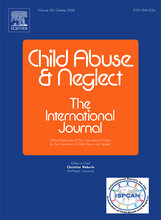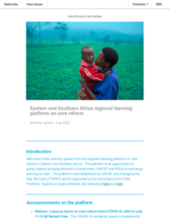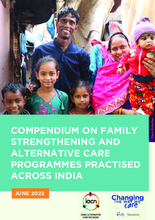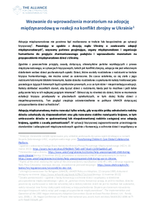Displaying 1641 - 1650 of 14557
Regulations set conditions on authorities wishing to place children in Scotland from elsewhere in the UK, but campaigners warn they are providing cover for lack of investment in England
Debates exist regarding whether foster youth should be asked about their placement preferences following removal, with only youth aged 12 years and older at times assumed legally competent to provide input. The present study evaluated whether placement-related factors known to predict youth's well-being also shape their placement preferences and whether preferences differ between youth below and above the age at which they are considered legally competent to provide input.
New guidance from the federal government will make it easier for states to stop a controversial practice that, according to a 2021 NPR investigation, keeps impoverished families in debt when their child is placed into foster care.
Three months since his last update to the UN rights forum in Geneva, Special Rapporteur on the situation of human rights in Myanmar, Thomas Andrews, said that he’d met youngsters who’d fled the country after suffering “irreparable harm”.
UNICEF warns of a significant jump in the number of adolescent girls being forced into early marriage and Female Genital Mutilation (FGM) as the region's worst drought in 40 years pushes families to the edge.
Russian forces have reportedly captured the teenaged son of an official in Zaporizhzhia, while others have been separated from their families.
South Australia’s first Aboriginal Children’s Commissioner has launched a year-long Royal Commission-like inquiry into the State Government’s removal of Aboriginal children.
This is the monthly update of the Eastern and Southern Africa Regional Learning Platform published in July 2022.
This report maps the family strengthening and alternative care practices across 14 organisations and provides an overview into a number of elements including nature of care, target, coverage, intervention, the longevity of care, linkage to the child protection system, access to sponsorship provided by the State, challenges in implementing the program, among other aspects.
Adopcja międzynarodowa nie powinna być realizowana w trakcie lub bezpośrednio po sytuacji kryzysowej. Pozostając w zgodzie z decyzją rządu Ukrainy o zawieszeniu adopcji międzynarodowych, wzywamy państwa przyjmujące, organy międzynarodowe i organizacje humanitarne do przyjęcia zharmonizowanego podejścia i wprowadzenia moratorium na przysposobienie międzynarodowe dzieci z Ukrainy. Zgodnie z powszechnie przyjętą zasadą dotyczącą obowiązków państw wynikających z prawa międzynarodowego, w sytuacjach kryzysowych, takich jak konflikt zbrojny, adopcja nie jest właściwym działaniem wobec dzieci pozbawionych opieki. Dzieci, które zostały rozdzielone z rodzicami w trakcie kryzysu humanitarnego, nie można uznać za osierocone. Do czasu ustalenia, co się stało z jego rodzicami lub innymi bliskimi krewnymi, każde dziecko rozdzielone z opiekunami należy traktować jako posiadające żyjących krewnych bądź opiekunów prawnych, a co za tym idzie – niepotrzebujące adopcji.




